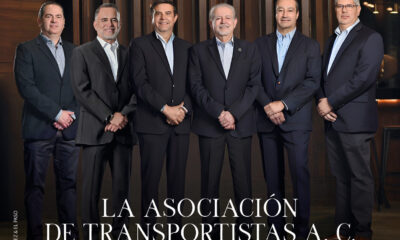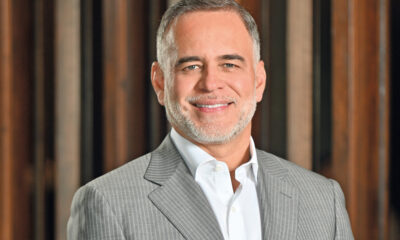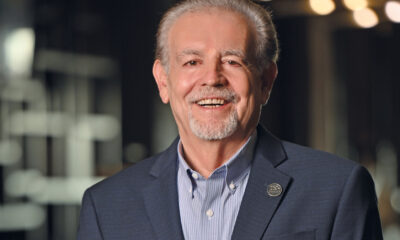Mi Vida Espiritual
Educación bíblica, teológica y ministerial
Publicado
5 años antesel
Por
Staff
Por Todas las Naciones
En el año 1520 el reformador Martín Lutero debatía sus posturas y demandas teológicas ante las autoridades alemanas. Como monje agustiniano su obligación era presentarse ante las autoridades eclesiásticas en Roma; pero apeló a su ciudadanía alemana y se quedó en su país a ser juzgado. Esto escandalizó a Europa, pero significativamente hace 500 años a nadie le escandalizó que un teólogo propusiera reformas para corregir errores del individuo, la sociedad y la Iglesia frente a Dios. Definitivamente eran otros tiempos, en los que la autoridad eclesiástica regía la vida ordinaria y extraordinaria de la sociedad.
Para bien o para mal eso cambió. Ahora Europa y el mundo entero no se escandalizan por las voces que demandan corregir errores que dañan al individuo y a la sociedad; sin embargo, sí se escandalizan cuando las voces proponen que la corrección sea conforme a las Sagradas Escrituras. Se escandalizan porque la sociedad de nuestra generación es secular; fue educada para aislar las causas y las consecuencias espirituales y además de aislarlas, también es diestra en dudarlas, ignorarlas, rechazarlas y negarlas.
De esa manera la sociedad está celebrando casi dos siglos de regirse bajo el método científico, el cual señala que la evidencia espiritual es subjetiva; por lo tanto, no existe, ni es verdadera, ni es real. Más aún, no tiene voz, participación ni autoridad para proponer la manera en que la sociedad debe ser corregida.
La Iglesia por su parte no ha ignorado las circunstancias y situaciones que constantemente atentan al acallar su mensaje de corrección y salvación. Sabiéndose responsable de comunicar el Evangelio de Jesucristo en medio de una sociedad que la rechaza, se ha mantenido alerta y en búsqueda de plataformas que le permitan cumplir su responsabilidad y llamado.
Por ejemplo, al igual que sucedió en los primeros siglos de su existencia, la Iglesia sabiamente sigue preparado hombres y mujeres para dar testimonio de Cristo mientras realizan sus oficios y profesiones cotidianas. Algunos ocupan plataformas de gran audiencia, otros saben agruparse para que la voz tenga eco, y otros prevalecen individualmente como baluarte inamovible de la verdad.
Sin embargo, es necesario enfatizar que en una sociedad secular es relativamente fácil y sencillo preparar a hombres y mujeres con oficios y profesiones para que sean testimonio de la verdad. Es fácil porque la sociedad misma llama, apoya, costea y produce esos trabajadores. La sociedad se organiza para preparar a la siguiente generación de trabajadores que ofrecerán beneficios en servicios y productos.
En esta organización se generaliza la métrica y la productividad esperada. Todos sabemos lo que un maestro, un zapatero, un comerciante, un conductor, un herrero, un policía ofrece, podemos medir su desempeño y rendimiento, sabemos qué tan útil y necesario es su participación y contribución en la sociedad.
Por eso reiteramos que para la Iglesia es fácil preparar a esos hombres y mujeres con oficios y profesiones, basta agregar a su educación la preparación de cómo ser testimonio de Cristo en la sociedad. En cambio, lo que es difícil y desafiante para la Iglesia es precisamente preparar a los que cuyo oficio y profesión no se mide conforme a lo propuesto por la sociedad, es decir, es difícil y desafiante la preparación de hombres y mujeres cuyo oficio y profesión será precisamente aquel que la sociedad secular no acepta porque lo juzga como inútil e innecesario, inclusive lo rechaza como falso e indigno.
Por ello la dificultad y el desafío de preparación no radica en la complejidad de preparar ministros, sino en que la sociedad ha tenido tanta influencia en la Iglesia, que ha llegado a cegarla en su responsabilidad de preparar a sus evangelistas, maestros, pastores, consejeros, adoradores y siervos.
La consecuencia de esto es que la Iglesia tiene pocos ministros preparados, son pocos y seguirán siendo pocos en proporción a la secularización de la sociedad. Entre más secular sean las comunidades en las que nos desenvolvemos, menos importancia le darán a la preparación de los hombres y mujeres que contribuyen a la sociedad con la corrección espiritual que necesita conforme a las Sagradas Escrituras.
La única manera en que los ministros dejarán de ser pocos y mal preparados será cuando atendamos el llamado de Jesús, cuando roguemos al Padre para que envíe ministros preparados para levantar la cosecha que ya está lista (Lucas 10:2).
Por lo tanto, roguemos al Padre plenamente convencidos de lo que le rogamos. No rogamos por voluntarios sin preparación, responsabilidad y compromiso, no rogamos así porque sería incongruente a toda la obra de salvación de Jesús. Mejor, obedezcamos este mandamiento a cabalidad; roguemos para que entendamos la dignidad del llamado de Dios a ser sus ministros. Roguemos a Dios para que envíe ministros preparados con conocimiento y habilidades que les harán servir a una sociedad secular que no espera ese servicio; pero que es el primero que necesita. Roguemos para que Dios envíe ministros virtuosos y llenos del fruto espiritual para corregir los errores espirituales del individuo, la sociedad y la Iglesia conforme a las Sagradas Escrituras. Roguemos.
“La mies a la verdad es mucha, mas los obreros pocos; por tanto, rogad al Señor de la mies que envíe obreros a su mies”
Lucas 10:2 (RVR1960)
Biblical, theological and ministerial education
By Todas las Nacioness
In 1520 the reformer Martin Luther debated his theological positions and demands before the German authorities. As an Augustinian monk his obligation was to appear before the ecclesiastical authorities in Rome; but he appealed to his German citizenship and remained in his country to be tried. This scandalized Europe, but 500 years ago no one was scandalized that a theologian proposed reforms to correct errors of the individual, society and the Church before God. They were definitely other times, in which the ecclesiastical authority ruled the ordinary and extraordinary life of society.
For better or for worse that changed. Now Europe and the entire world are not scandalized by the voices that demand to correct mistakes that harm the individual and society; however, they are scandalized when voices propose that correction be in accordance with the Holy Scriptures. They are scandalized because the society of our generation is secular; it was raised to isolate spiritual causes and consequences, and in addition to isolating them, it’s also skilled at doubting, ignoring, rejecting, and denying them.
In this way, society is celebrating almost two centuries of being governed by the scientific method, which indicates that spiritual evidence is subjective; therefore, it does not exist, nor is it true, nor is it real. Furthermore, it has no voice, participation, or authority to propose how society should be corrected.
The Church for its part has not ignored the circumstances and situations that constantly threaten to silence its message of correction and salvation. Knowing himself responsible for communicating the Gospel of Jesus Christ in the midst of a society that rejects it, it has remained alert and in search of platforms that allow him to fulfill his responsibility and call.
For example, as in the first centuries of its existence, the Church wisely continues to prepare men and women to bear witness to Christ as they carry out their daily offices and professions. Some use platforms with a large audience, others know how to group themselves so that the voice has an echo, and others individually prevail as an immovable bulwark of truth.
However, it’s necessary to emphasize that in a secular society it’s relatively easy and straightforward to prepare men and women with professions to be witnesses to the truth. It’s easy because society itself calls, supports, pays for and produces these workers. The society is organized to prepare the next generation of workers who will offer benefits in services and products.
In this organization the expected productivity and metrics are generalized. We all know what a teacher, a shoemaker, a merchant, a driver, a policeman offers, we can measure their performance, we know how useful and necessary their participation and contribution in society is.
That is why we reiterate that for the Church it’s easy to prepare these men and women with professions, it’s enough to add to their education the preparation of how to be a witness to Christ in society. On the other hand, what is difficult and challenging for the Church is precisely to prepare those whose profession is not measured according to what is proposed by society, that is, it’s difficult and challenging to prepare men and women whose and profession It will be precisely the one that secular society does not accept because it judges it as useless and unnecessary, even rejects it as false and unworthy.
For this reason, the difficulty and challenge of preparation doesn’t lie in the complexity of preparing ministers, but in the fact that society has had such an influence on the Church, that it has come to blind her in her responsibility to prepare her evangelists, teachers, pastors, counselors, worshipers and servants.
The consequence of this is that the Church has few trained ministers, they are few and they will remain few in proportion to the secularization of society. The more secular the communities in which we operate, the less importance they will give to the preparation of the men and women who contribute to society with the spiritual correction it needs according to the Holy Scriptures.
The only way that ministers will cease to be few and unprepared will be when we heed the call of Jesus, when we pray to the Father to send ministers ready to reap the harvest that is already ready (Luke 10: 2).
Therefore, let’s pray to the Father fully convinced of what we ask of him. We do not pray for volunteers without preparation, responsibility and commitment, we don’t pray that way because it would be incongruous to all of Jesus’ work of salvation. Better, let’s obey this commandment fully; Let’s pray that we understand the dignity of God’s call to be his ministers. We pray to God to send ministers prepared with knowledge and skills that will make them serve a secular society that does not expect that service; but that is the first one you need. Let’s pray that God will send virtuous ministers full of his spiritual fruit to correct the spiritual errors of the individual, the society and the Church according to the Holy Scriptures. Let’s pray.
“Therefore said he unto them, The harvest truly is great, but the labourers are few: pray ye therefore the Lord of the harvest, that he would send forth labourers into his harvest”
Luke 10: 2 (KJV)
Te puede interesar

No es solo unir espacios, sino acercar personas con respeto y comprensión.
Qué placer acercarnos de nuevo a través del lápiz y el papel, mi querida visionaria.
Hoy vivimos en un mundo lleno de muros: físicos, emocionales y espirituales. Sin embargo, si queremos forjar relaciones sanas y fuertes, debemos atrevernos a construir puentes. Los puentes no se levantan solos; alguien tiene que tomar la decisión de iniciarlos.
Jesucristo no edificó templos de piedra; Él construyó puentes de relación: con todo tipo de personas , marginados, enfermos, pobres e incluso con enemigos.
Como dice Efesios 2:14:
Él nos dejó un ejemplo claro de cómo construir puentes llenos de comunicación, amor y misericordia. Y Jesucristo es nuestro cimiento. Un puente sin cimientos se derrumba; nuestra fe es el ancla que nos mantiene firmes, porque nos permite creer que el cambio es posible incluso cuando todo parece perdido.
Si queremos construir puentes de esperanza, debemos ser mujeres llenas de fe, alimentadas por la Palabra y la oración. Así, el material principal para esos puentes será el amor que nos une.
Un puente verdadero se edifica con materiales resistentes, y el amor de igual manera se construye con estabilidad, es el único que soporta el peso del rechazo y el prejuicio. El amor rompe cualquier barrera y abre el camino para que Dios llegue por un puente para que podamos cruzarlo.
Dios nos llama a ser canales de amor que son tablas y cuerdas que ayudan a otros a dar ese paso y que nuestros actos, palabras y amor sean ese puente
Construir puentes no es algo que podamos hacer solas; necesitamos la intervención divina. Cada vez que perdonamos, nos acercamos a Dios o mostramos compasión, colocamos piezas en ese puente que nos une con nuestro Creador.
Comencemos en casa y seamos ese puente para quienes nos rodean.
Con amor: Verónica Guerrero.
Building Bridges of Hope
It’s not just about connecting spaces but bringing people closer with respect and understanding.
What a joy it is to draw near once again through pen and paper, my dear visionary.
Today we live in a world full of walls: physical, emotional, and spiritual. Yet, if we want to forge healthy and strong relationships, we must dare to build bridges. Bridges don’t rise on their own; someone must make the decision to begin them.
Jesus Christ did not build temples of stone; He built bridges of relationship—with all kinds of people, the marginalized, the sick, the poor, and even with enemies. As Ephesians 2:14 says:
He left us a clear example of how to build bridges filled with communication, love, and mercy. And Jesus Christ is our foundation. A bridge without foundations collapses; our faith is the anchor that keeps us firm, because it allows us to believe that change is possible even when everything seems lost.
If we want to build bridges of hope, we must be women filled with faith, nourished by the Word and by prayer. In this way, the main material for those bridges will be the love that unites us.
A true bridge is built with resistant materials, and love in the same way is constructed with stability—it is the only thing strong enough to bear the weight of rejection and prejudice. Love breaks through any barrier and opens the way for God to arrive on a bridge so that we may cross it.
God calls us to be channels of love—planks and cords that help others take that step—so that our actions, words, and love may be that bridge.
Building bridges is not something we can do alone; we need divine intervention. Every time we forgive, draw near to God, or show compassion, we place pieces in that bridge that connects us to our Creator.
Let’s begin at home and be that bridge for those around us.
With love, Veronica Guerrero.
Mi Vida Espiritual
Un espíritu joven te da vida
Publicado
3 meses antesel
01/08/2025Por
Carolina Montoya
Para Dios no es sólo una etapa biológica, sino una actitud del alma
Cuando escuchamos la palabra juventud, solemos pensar en energía, novedad y sueños por cumplir, sin embargo, en el corazón de Dios, la juventud no es sólo una etapa biológica, sino una actitud del alma.
Un “espíritu joven” en la Biblia no depende de los años que llevamos vividos, sino de la disposición que tenemos para dejarnos renovar por él cada día.
1. Renovados desde adentro
La verdadera juventud empieza cuando nos encontramos con Jesús, su amor nos hace nuevos.
Cuando nacemos, nuestro espíritu se refresca, se despierta.
Como dice 2 Corintios 4:16, “aunque por fuera nos vamos desgastando, por dentro nos vamos renovando día tras día”, y así es: Dios no busca piel firme, sino corazones sensibles a su voz.
2. Aprender como niños
Un espíritu joven tiene hambre de aprender, no se conforma. Tiene esa chispa de querer conocer más de la Palabra, de entender cómo ama Dios, de preguntarse cómo vivir mejor cada promesa. Es como ese corazón que se mantiene enseñable, humilde y dispuesto a crecer.
3. Soñar con esperanza
La juventud también es esperanza y en Dios, nunca es tarde para volver a soñar. Él plantea nuevas visiones incluso en los que ya se sentían agotados. Joel 2:28 lo confirma: “vuestros ancianos soñarán sueños, y vuestros jóvenes verán visiones”.
Dios no deja de hablar ni de inspirar a quienes tienen un espíritu dispuesto.
No importa si tienes 18 o 68 años. Hoy puedes pedirle a Dios que te regale un espíritu joven, que refresque tu fe, tus sueños, tu manera de ver la vida, porque los que confían en el Señor “renovarán sus fuerzas; levantarán alas como las águilas, correrán y no se cansarán, caminarán y no se fatigarán” (Isaías 40:31).
A Youthful Spirit Gives You Life
For God, it’s not just a biological stage but an attitude of the soul.
When we hear the word youth, we often think of energy, freshness, and dreams yet to be fulfilled. However, in God’s heart, youth is not just a biological stage — it’s an attitude of the soul.
A “youthful spirit” in the Bible does not depend on how many years we’ve lived, but on our willingness to be renewed by Him each day.
1. Renewed from Within
True youth begins when we encounter Jesus; His love makes us new.
When we are born again, our spirit is refreshed, awakened.
As 2 Corinthians 4:16 says, “Though outwardly we are wasting away, yet inwardly we are being renewed day by day.” And it’s true: God is not looking for firm skin, but for hearts sensitive to His voice.
2. Learning Like Children
A youthful spirit has a hunger to learn; it isn’t content with staying the same. It carries that spark — the desire to know more of the Word, to understand how God loves, to ask how to live out each promise better. It’s the kind of heart that remains teachable, humble, and willing to grow.
3. Dreaming with Hope
Youth is also about hope, and in God, it’s never too late to dream again. He gives new vision even to those who feel worn out. Joel 2:28 confirms it: “Your old men will dream dreams; your young men will see visions.”
God never stops speaking or inspiring those who have a willing spirit.
It doesn’t matter whether you are 18 or 68. Today, you can ask God to give you a youthful spirit — to refresh your faith, your dreams, your way of seeing life — because those who trust in the Lord “will renew their strength; they will soar on wings like eagles, they will run and not grow weary, they will walk and not be faint.” (Isaiah 40:31)

Decir gracias produce una sensación de impacto que puede llegar a ser transformadora
Escuchar la palabra “gracias” durante nuestro día, mientras realizamos diferentes actividades, es gratificante, pues nos hace ver que aún hay personas con corazón agradecido. Sin embargo, esta actitud se ha ido perdiendo, pues la gente está tan absorta en su vida y pensamientos que en los más mínimos detalles olvidamos decir la palabra mágica.
Pero ¿por qué menciono que sea una palabra mágica?, porque al recibir o dar las gracias se produce en la persona una sensación de impacto que puede llegar a ser transformadora, porque motiva a quien se la decimos y aún más si va acompañada de una sonrisa.
Cómo definir la gratitud
La real academia española la define como el sentimiento que nos obliga a estimar la ayuda de otro. Es esa emoción que sentimos cuando estamos agradecidos con alguien que nos ha beneficiado. También la gratitud a manera personal es cuando valoramos lo que tenemos y apreciamos todo lo recibido a nuestra vida.
El decir “gracias” nos beneficia de diferentes maneras, en lo físico, en lo mental o psicológico, mejora el estrés, ayuda a dormir mejor, reduce las actitudes agresivas, mejora las relaciones interpersonales y hasta puede ser liberador en algún rencor o sentimiento de odio con sólo decirlo.
La Biblia menciona la gratitud como esa actitud del corazón hacia Dios, en 1 de Tesalonicenses 5:18 dice: “Dar gracias en todo, porque esta es la voluntad de Dios para con vosotros en Cristo Jesús”. Esta parte nos enseña a dar gracias en todo, en lo bueno y en lo no tan bueno, en lo que tenemos y en lo que no tenemos, porque el tener ese corazón agradecido hacia con Dios nos acercara a su bondad y nos enseñara a practicarlo para con los que nos rodean.
Transforma tu vida y la de los demás diciendo “gracias” con un corazón sincero y humilde porque el vivir con gratitud debe ser un estilo de vida que impacte a nuestra sociedad.
The Power of Gratitude
Saying thank you produces a sense of impact that can become transformative.
Hearing the word “thank you” throughout our day, while we carry out different activities, is gratifying, as it shows us there are still people with grateful hearts. However, this attitude has been fading, as people are so absorbed in their lives and thoughts that in the smallest details, we forget to say the magic word.
But why do I call it a magic word? Because receiving or giving thanks creates a feeling of impact in a person that can become transformative—it motivates the person we say it to, especially when it’s accompanied by a smile.
How to Define Gratitude
The Royal Spanish Academy defines it as the feeling that compels us to value the help of others. It is that emotion we feel when we are thankful to someone who has benefited us. Gratitude, on a personal level, is also when we value what we have and appreciate all that has come into our lives.
Saying “thank you” benefits us in many ways—physically, mentally, and psychologically. It improves stress, helps us sleep better, reduces aggressive behavior, improves interpersonal relationships, and can even be liberating from resentment or hatred just by saying it.
The Bible speaks of gratitude as an attitude of the heart toward God. In 1 Thessalonians 5:18, it says: “Give thanks in all circumstances; for this is God’s will for you in Christ Jesus.” This verse teaches us to be thankful in everything—in the good and the not-so-good, in what we have and what we don’t—because having a grateful heart toward God draws us closer to His goodness and teaches us to practice it with those around us.
Transform your life and the lives of others by saying “thank you” with a sincere and humble heart, because living with gratitude should be a lifestyle that impacts our society.










